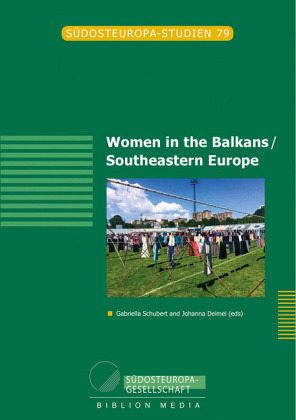
Women in the Balkans/ Southeastern Europe
Versandkostenfrei!
Versandfertig in 6-10 Tagen
35,50 €
inkl. MwSt.

PAYBACK Punkte
0 °P sammeln!
This book is a collection of contributions to a symposium which was organized by the Southeast Europe Association (Südosteuropa-Gesellschaft) on the topic "Women in the Balkans/Southeastern Europe" and held on 3rd and 4th November 2014 in Munich. It reflects on the present situation of women in the Balkans/Southeast Europe which has experienced fundamental changes since the end of the communist/socialist regime and the transition towards a market oriented economy as well as the wars in former Yugoslavia. These fundamental changes and war time experiences have not only implicated disorders in ...
This book is a collection of contributions to a symposium which was organized by the Southeast Europe Association (Südosteuropa-Gesellschaft) on the topic "Women in the Balkans/Southeastern Europe" and held on 3rd and 4th November 2014 in Munich. It reflects on the present situation of women in the Balkans/Southeast Europe which has experienced fundamental changes since the end of the communist/socialist regime and the transition towards a market oriented economy as well as the wars in former Yugoslavia. These fundamental changes and war time experiences have not only implicated disorders in political and social status, but also a backlash in terms of return to patriarchal values as well as to traditional gender relations and hierarchies. A perception of gender roles following traditional patterns and a concept of femininity reducing women to their bodies, open sexism in media, the so called "sex industry" and "women markets" plus the ban of abortion, increased domestic violence and trafficking in women have been combined with neoliberal values, right ideology, neo-patriarchy and the ruling concept of masculinity. On the other hand, women have also used their chance to create their own business, not to forget female subcultures. Women`s participation in decision-making, especially in political parties, and their representation in the public scenery is an important indicator for the degree of their emancipation. Bringing together women engaged on women`s issues in different areas - from the academia, the Non-Governmental Organisations and civil society, and policy makers - is bound to result in a variety of perspectives and views.












